
Covid hit TU/e hard, but the community bounced back
What do our students and staff remember about it?
Exactly five years ago, the Covid pandemic broke out in the Netherlands. From one moment to the next, TU/e went into lockdown. Working from home, online education, and observing a distance of 1.5 meters became the norm. What did this do to the TU/e community? Students and staff look back. “Together, we showed what we’re capable of.”
“Keeping the photography association alive was my main task when I was on the board of Dekate Mousa. We were no longer allowed to meet in groups and had to come up with online events. Even with all the creativity that went into that, a lot fewer people attended. Sometimes only the board was there. Meanwhile, our members begged if they could reserve our photo studio so they could get out of the house for a while. The most difficult thing was putting together a new board. That turned out to be quite difficult if you can’t meet each other physically. If we hadn’t managed, our sixty-year-old association would have ceased to exist. Through trial and error, virtual get-togethers, and calls via the communication platform Discord, we finally succeeded. I myself did an extra year on the board. I felt that I hadn’t had the ‘real’ experience, even though all those online meetings did continue afterwards.”
“We’ll have a week off soon, I told my colleagues jokingly when we read the newspaper report about the first infection in the Netherlands, not knowing that the whole thing would take years. During the lockdown, we only had to cancel group treatments. We needed time to make all protocols and modules suitable for digital use. We also gave students tips on how to continue taking care of themselves. This still echoes through the university’s wellbeing page. Digitization was quite a job, because doing a session online was not possible at all before Covid. So we had to get used to the new status quo, but in the quarter that followed, all help had been moved online. We even did the group sessions in Zoom, although the connection was crap. That’s been improved now. This is the new normal. But it’s still not my preference: it's easier to make contact physically than online.”
“I was supposed to fly to Nepal the next day, but instead the crisis team had met and all leaves had been revoked. Key points were drawn up and the digitization of education was one of them. I was manager of teacher support & quality assurance at ESA at the time, so that task was assigned to me, among others. All classes now had to be organized online. There was going to have to be help for teachers, software for lecture recordings and live online lectures, and everything had to be communicated with the students. Exams also had to be taken online. This was a race against the clock because the exam week was just around the corner. Our digital testing software had to be linked to a proctoring tool. This films the student during the exam and records their screen to prevent fraud. Such software involves high privacy issues. For this, we sought close consultation with student representatives. The first online exam we organized had gone completely wrong. I even had to call the director out of bed for it. Due to start-up problems of the new system, the students were not able to enter the test. After that, fortunately, we got it under control.”
“I remember that it was March 12 when we heard that the TU/e was closing and we had to clean up all the food. That went into freezers or was thrown away. After that, we stayed at home for quite a long time. To do something for the employees, we went around the campus with a mobile canteen when the restrictions were first eased. There were still a few people working in the office here and there. Twenty members of catering staff were laid off, which hit us very hard. PhD conferral and graduation ceremonies were still being held, with all the finger food having to be packaged separately. It was all far from sustainable. I remember feeling very sad the day I biked across the campus and it was so quiet. And I will never forget the first get-together. At the first open day, the bar was open and 150 people sang a song. Tears were streaming down my cheeks.”
“Covid came as a shock. As the Wervingsdagen Committee, we had worked on the Career Expo for an entire year. On Tuesday, there were about eighty companies at the fair, and on Wednesday another hundred were expected. When the mayor informed us, through the Executive Board, that we had to cancel the fair, the committee was in tears. The Wervingsdagen account was over a hundred thousand in the red due to lost income from the companies. But with legal and financial advice from TU/e, we were able to close this gap. In the end, I learned a lot from it. I now know that you shouldn’t panic in a crisis. The right people will always come your way. It was also instructive to find the motivation to continue as a committee. We went back to the core: offering students orientation in the job market. This Covid experience has also been useful to me in job interviews and in my current work environment at Shell.”
“We were blissfully unaware of what was happening when I received a phone call from the mayor. The Career Expo, which had just started, had to be stopped immediately. There I was in my office with the dismayed committee members. Yet they recovered very quickly. In retrospect, this was a defining moment. The sadness and resilience I saw in students and staff at that time is symbolic of the entire Covid period. Together, we showed what we’re capable of. In the first weeks, a lot came at the board; everything had to be managed properly at the same time. But the most important thing, we agreed, was good and warm communication, so that we’d stay connected with each other. I recorded a lot of videos from my home office to address the TU/e community. As a board, we also facilitated students and staff where we could to limit the impact of the measures, for instance by allowing them to have a drink at a sidewalk cafe while observing a distance of one and a half meters.”
“During the first period of the Covid pandemic, it was impossible to exercise at all. My work rhythm completely disappeared. I was used to giving squash training sessions from noon until the evening, and now I was stuck at home in Venlo. I was bored out of my mind. The student sports center followed the rules that the TU/e was handed by the government and we also looked at what the sports associations were doing. When at a certain point we were allowed to exercise outside at a distance of one and a half meters from each other, we handed out equipment that students could use to work out at the Playground. Through the emergency exit, I passed out resistance bands, kettlebells, and the like, along with instructions on laminated sheets of paper. During this time, we asked the students to sign up before coming over. This meant I had to ask them for QR codes when they showed up, which was my only moment of contact with the students. Not ideal for a contact-driven environment like the SSC.”

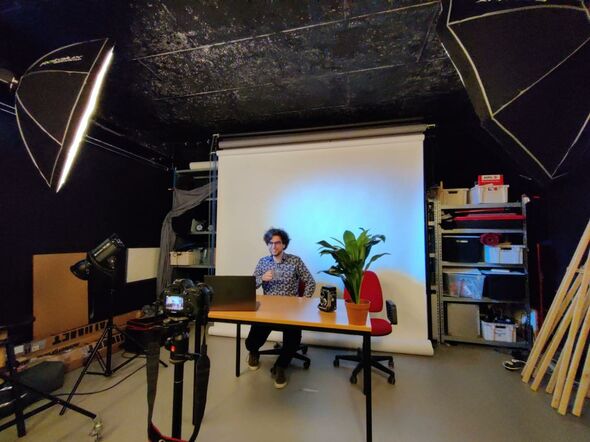
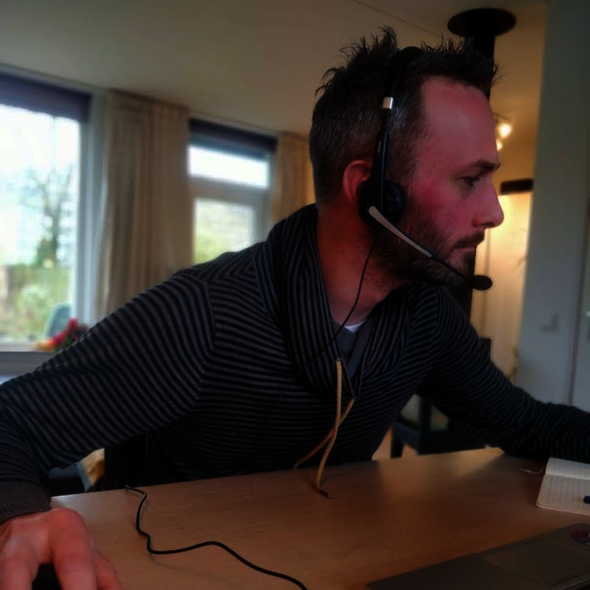
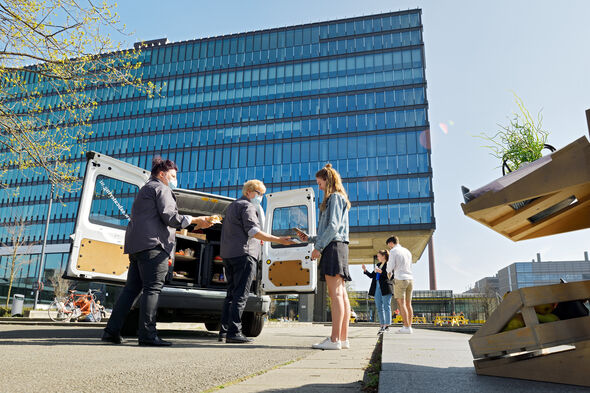
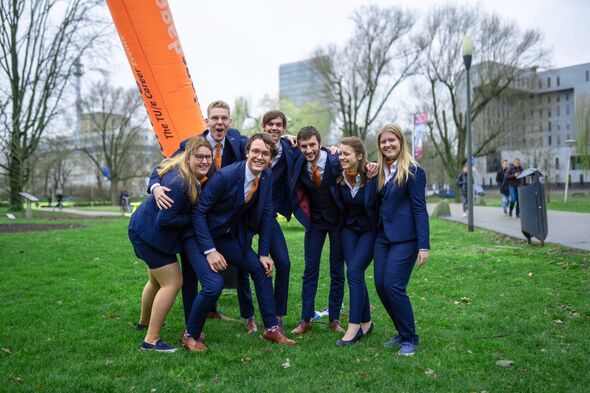
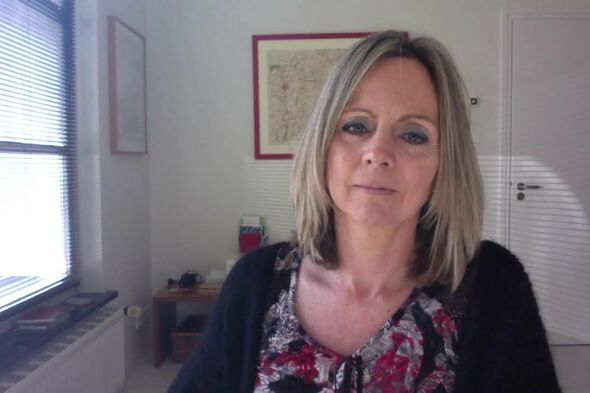
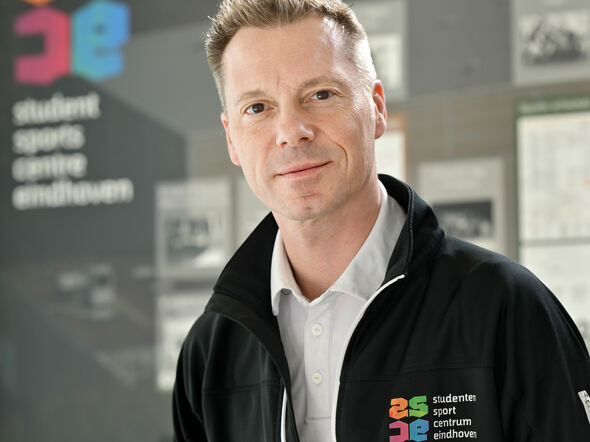
Discussion